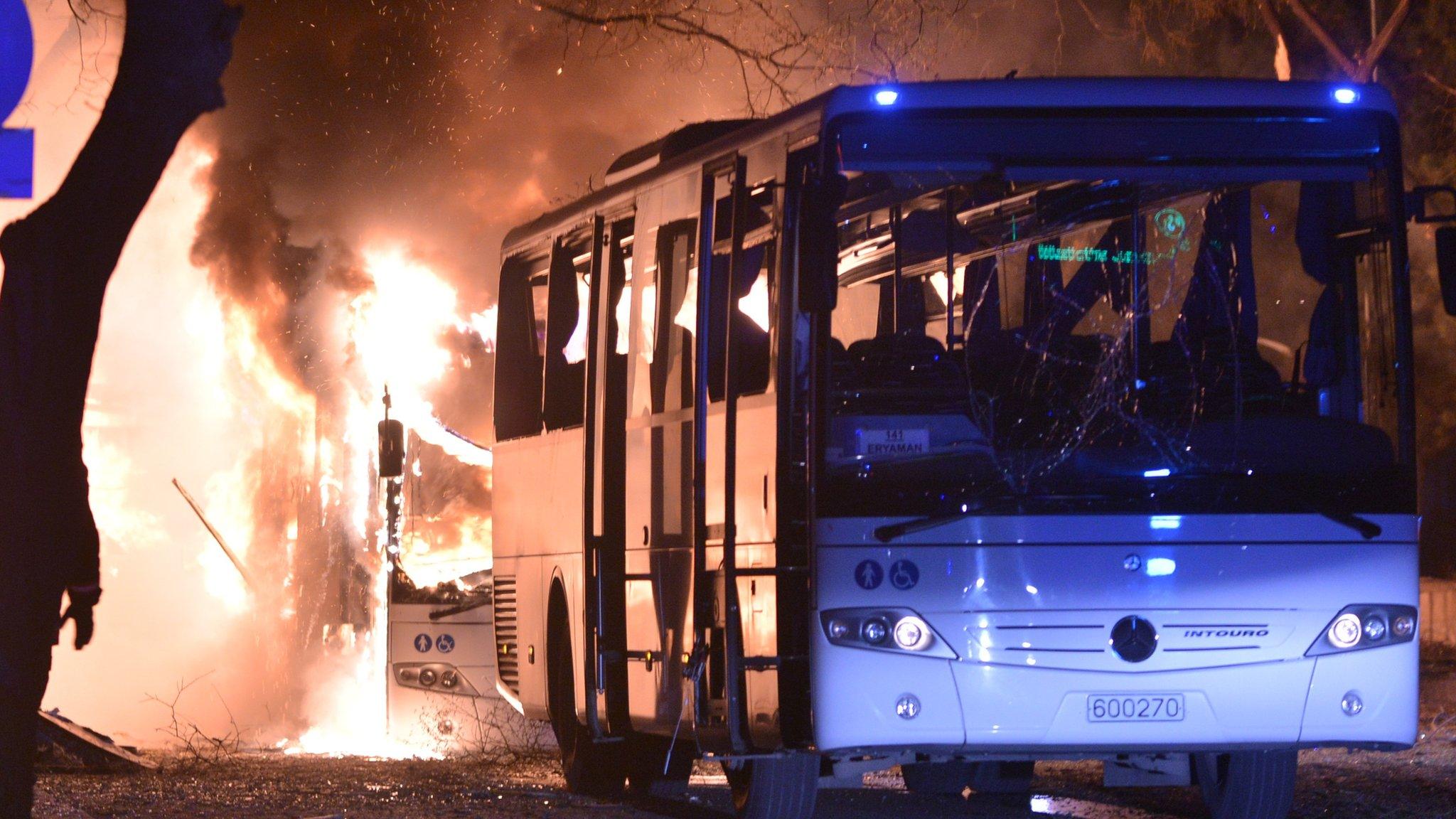Residents return to battered city Cizre as Turkey eases curfew
- Published
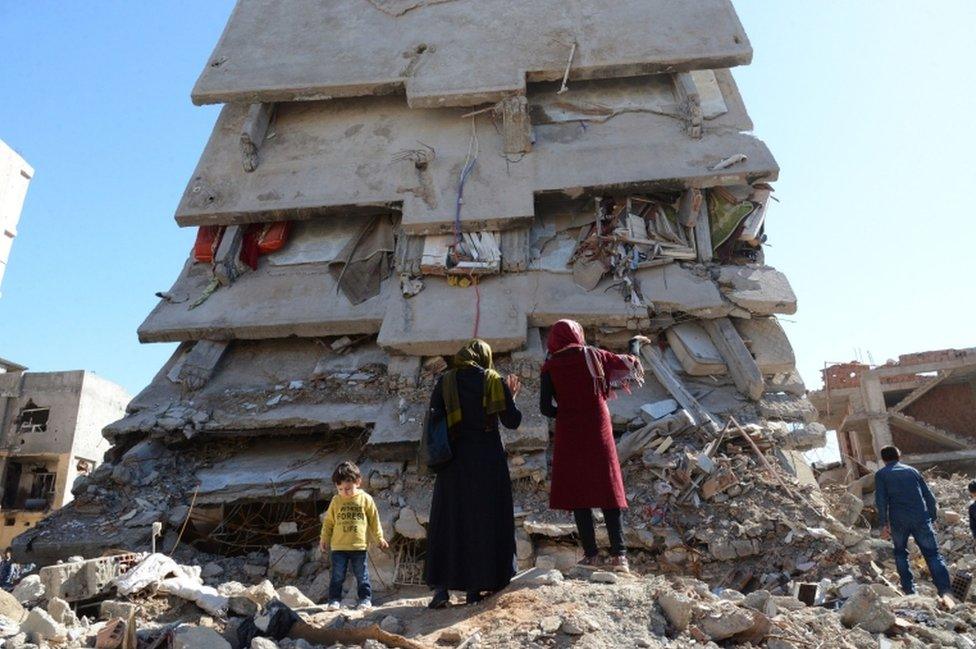
Buildings in Cizre suffered heavy damage in fighting between the government and the PKK's youth wing
Residents have returned to a Turkish city after fighting between the government and PKK rebels left many homes in ruins.
Families went back to Cizre after a curfew was eased.
The mainly Kurdish city has been under round-the-clock lockdown since mid-December.
Violence erupted after a ceasefire between the government and the Kurdistan Workers' Party (PKK) collapsed in July.
Cizre has been put under several curfews since then, despite concerns from human rights activists.
The latest lockdown was partially lifted on Wednesday, although it will still hold between 19:30 and 05:00.
Undetected explosives
Residents returning to Cizre found homes damaged and shops in ruins. There were reports of bodies found among the rubble.
Grim reports from Turkish town under curfew
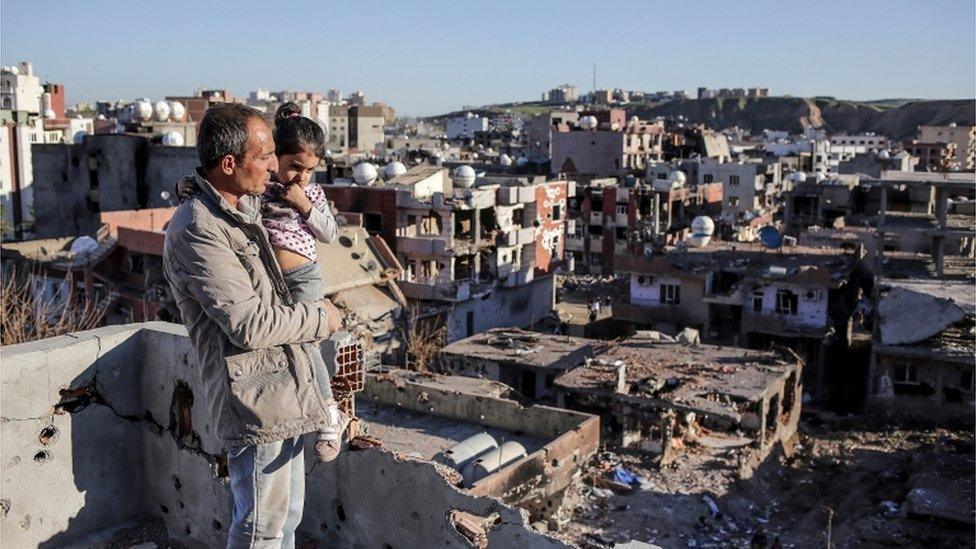
Some residents compared the damage in Cizre to that in neighbouring Syria
A mother of five, whose home had been punctured by mortars, told Associated Press: "There is no way we can live here."
Meanwhile Ali Ihsan Su, governor of Sirnak province, warned returning residents to be careful about possible undetected explosive devices in their homes, the news agency reported.
'Collective punishment'
The Turkish authorities barred access to the city in December as the army launched its latest offensive against rebels linked to the PKK.
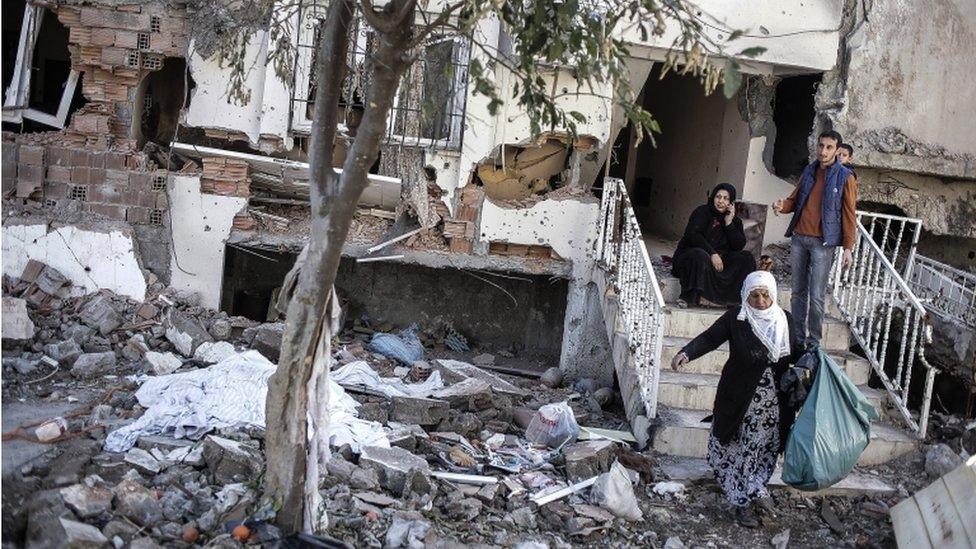
Shelling smashed through walls and windows
The government has imposed similar curfews in other areas in the mainly Kurdish south-east, including the city of Diyarbakir.
Amnesty International has denounced the restrictions as "collective punishment", external that puts the lives of hundreds of thousands of people at risk.
More than 40,000 people have died since the PKK launched an armed campaign in 1984, calling for an independent Kurdish state within Turkey.
The ceasefire that began in 2013 unravelled in July, after a suicide bombing by suspected Islamic State militants near the border with Syria.
The attack led to mutual recriminations between Kurdish groups and Turkey. Around 200,000 people have been displaced.
- Published17 December 2015
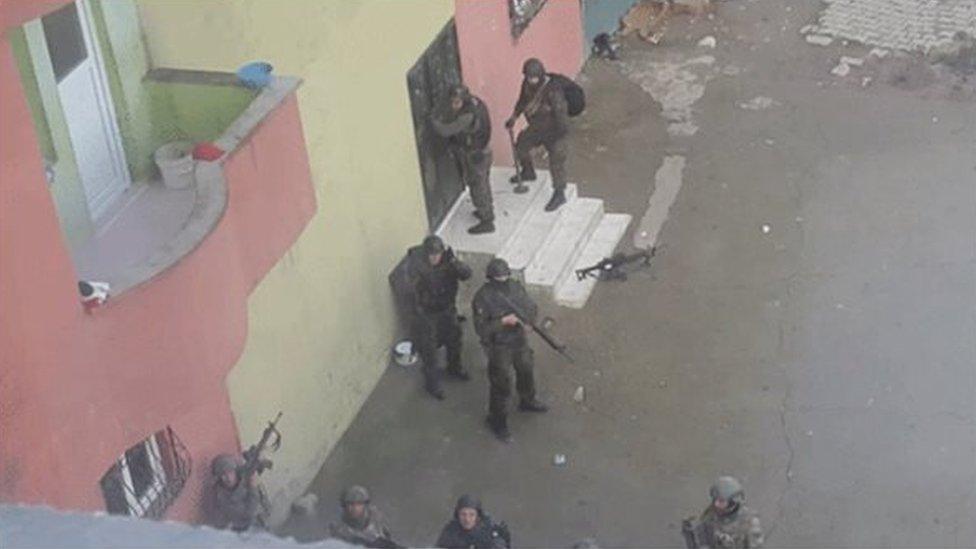
- Published11 September 2015
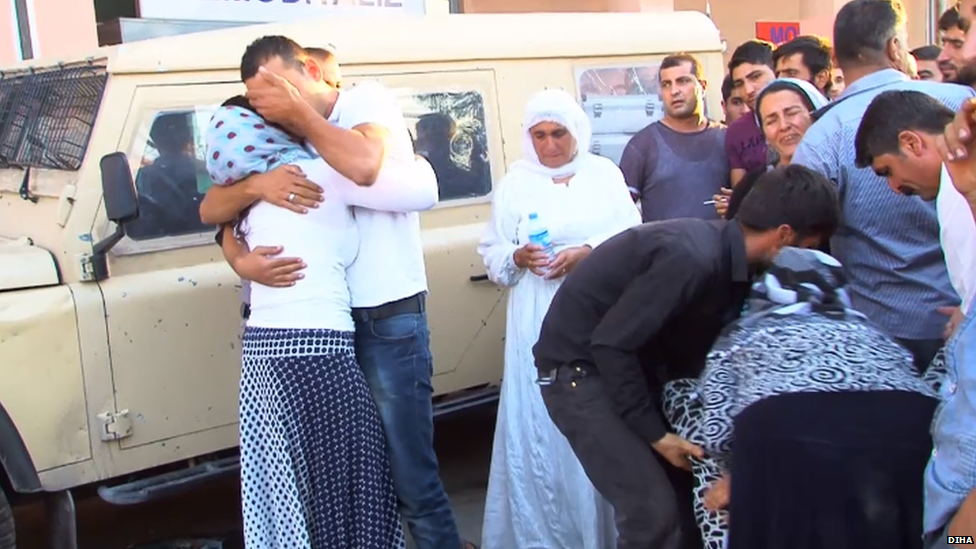
- Published18 February 2016
